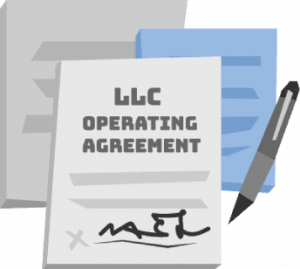How to Start an LLC in Texas
Forming a Limited Liability Company (LLC) is a great move when starting a business in Texas. LLCs provide liability protection by legally distinguishing you from your company. Plus, LLCs are taxed as pass-through entities by default, meaning the LLC itself doesn’t pay taxes. Instead the profits pass through to the owners to be reported on their individual income tax returns.
To form your LLC in Texas, you’ll need to file a Texas Certificate of Formation with the Texas Secretary of State and pay a $300 filing fee. But if you want your LLC to run properly, you’ll also want to take some extra steps, including opening a business bank account and writing an LLC operating agreement. Follow this guide for everything you need to start, run, and maintain your Texas LLC.

1. Name Your LLC
Before you can file a Texas Certificate of Formation, you’ll need a name for your business. You can call your LLC almost anything you like, as long as it’s not already in use and follows Texas’s general entity name rules and Texas Business Organizations Code § 79:30-46. In particular, your LLC name must:
- Include an indicator like Limited Liability Company or LLC
- Not include words or abbreviations that suggest your LLC is something it’s not, such as using the identifiers LP or Corporation, implying government affiliation, or using terms restricted to licensed businesses like Insurance Agency
- Be suitably distinct from the names of any other Texas businesses
You can search business names in Texas to check whether your preferred name is available.
Not ready to form your LLC? Texas lets you put a hold on an available name with an Application for Reservation or Renewal of Reservation of an Entity Name, which costs $40 to file. Name reservations are valid for 120 days and can be renewed for an additional 120.

2. Register Your Domain Name
Next up, you’ll want to secure a domain name for your website. Why are these important? Just like you need a street address to help people find you on a map, you need a domain name to help people find you on the web.
For domain names, it’s better to register earlier rather than later. There are two basic reasons why:
- Credibility: When you bother to establish a professional domain name, you’re letting customers know you take your work seriously.
- Consistency: A domain name that connects to your brand name makes it simpler for customers to remember you, which makes them more likely to seek you out.
At Northwest, we offer domain names in-house. You’ll even get a free year of domain name registration when you hire us to form your business.

3. File Texas LLC Certificate of Formation
With a business name and domain locked down, it’s time to file a Texas Certificate of Formation (LLC) and a $300 fee with the Texas Secretary of State. If paying by credit card, you’ll also be charged a 2.7% convenience fee, or about $8. After filing the Certificate of Formation, you will have officially created your LLC in Texas. To fill out the paperwork properly, you’ll need to provide the following information:
Note: All of the information on this form will become part of the public record.
Include an indicator such as Limited Liability Company or LLC.
Include the name and address of the individual or business entity that will accept legal and state documents on your behalf.
Indicate whether your LLC will be member-managed or manager-managed, and include the name and address of each member or manager.
This entry is optional. The Certificate of Formation already states that you may form an LLC in Texas for any lawful purpose, so while you may list a more specific purpose, one isn’t required.
This can be a P.O. Box.
You can include additional provisions or leave this optional section blank.
This is the person who files your certificate. They do not otherwise have to be associated with your LLC.
You may include a future date (up to 90 days) to delay the start of your LLC, or select A for the earliest possible formation date.
This is where your organizer must sign and date the form.
How Do I Submit a Texas Certificate of Formation?
You can file your forms with the Texas Secretary of State online through SOSDirect, or by mail at:
Secretary of State
P.O. Box 13697
Austin, TX 78711-3697
Note: When filing by mail, you must include your original Certificate of Formation plus a duplicate copy. Once the state receives your documents, the duplicate form will be stamped and returned to you.
What is a Texas Series LLC?
A Series LLC is an LLC that contains multiple LLCs within it, each viewed as their own company. To start a Texas Series LLC, you’ll need to submit a supplemental Series LLC provision when filing your Certificate of Formation.

4. Write an Operating Agreement
Your LLC’s operating agreement is the operating system of your business. It spells out your LLC’s rules for financial contributions, management roles, voting rights, and other responsibilities of LLC members.
Officially, Texas doesn’t require a written operating agreement—an oral agreement is also considered valid. But a tangible operating agreement helps with resolving member conflicts and keeping things running properly. Many banks also want to see an operating agreement when opening an account for an LLC.
A documented operating agreement can also aid in shoring up your limited liability status. Without an operating agreement, a court may view your LLC as a sole proprietorship or partnership. This could jeopardize your liability protection.
Plus, without one, your LLC has to operate according to Texas’s default LLC statutes, rather than how you and any other members want to run it.
Check out our free attorney-drafted Texas LLC operating agreement template.
A good operating agreement should provide a detailed overview of the LLC’s overall business purpose and other big picture matters, such as how the company will be taxed and accept new members. Here’s a list of other topics typically included in operating agreements:
- Initial investments
- Profits, losses, and distributions
- Voting rights, decision-making powers, and management
- Transfer of membership interest
- Dissolving the business
Texas allows you to include pretty much anything in your operating agreement—so long as it doesn’t violate state law or the Certificate of Formation.
Yes. You might not need an operating agreement to manage a dispute with yourself, but you’ll still need one to open most business bank accounts and maintain your LLC’s limited liability.

5. Get an EIN
An Employer Identification Number (EIN) is an number the IRS assigns businesses which works like a Social Security Number. Any LLC with employees (or more than one member) must obtain an EIN, but even single-member LLCs with no employees need an EIN to open a business bank account. Plus, without an EIN, you have to use your personal Social Security Number when doing business.
There’s no fee to get an EIN from the IRS, and you can get one fast by applying online. However, if you don’t have a Social Security Number, you’ll have to send a physical Form SS-4. Alternatively, you can hire us to get an EIN for you.

6. Open a Bank Account
Mixing business finances and personal finances weakens the legal separation between you and your LLC, and means a court could find you personally responsible for judgments issued against your LLC. The best way to prevent that separation from breaking down is by opening a bank account for your LLC and keeping business funds from intermixing with your own money.
Banks have varying requirements for opening a business account, but you’ll probably need to bring the following to the bank:
- your Texas Certificate of Formation (a copy works too)
- your LLC operating agreement
- your LLC’s EIN
- a LLC Resolution to Open a Bank Account, if your LLC has more than one member
Learn more about how to open a bank account for LLCs.

7. File Reports & Pay Taxes
After forming your LLC, you’ll eventually need to file an Annual Franchise Tax Report—basically a tax return. All Lone Star State LLCs must file the report with the Texas Comptroller of Public Accounts every year on May 15, and may do so online or by mail.
By reporting revenue and your LLC’s industrial classification, this filing determines how much franchise tax your LLC needs to pay. However, most businesses won’t need to worry about franchise tax, because the amount of business revenue required to pay franchise tax starts at $2,470,000.
Between its growing population and its reputation as a business-friendly state, Texas is a popular place to start a business. But its in-demand status can make it that much harder to set up an office in the Lone Star State.
That’s where a virtual office comes in handy. A virtual office gives you a Texas address without having to worry about things like building inspections or utility bills.
Whether you live inside or outside the state, our Texas Virtual Office service lets you list a commercial address without requiring you to list your home address. You can establish authority and credibility with your clients without sacrificing privacy.
You can pick from two mail forwarding options: same-day digital scanning or, if you’d rather not have us open your mail, weekly physical mail forwarding.
*This is informational commentary, not advice. This information is intended strictly for informational purposes and does not constitute legal advice or a substitute for legal counsel. This information is not intended to create, nor does your receipt, viewing, or use of it constitute, an attorney-client relationship. More information is available in our Terms of Service.
Ready to Start an LLC in Texas?









